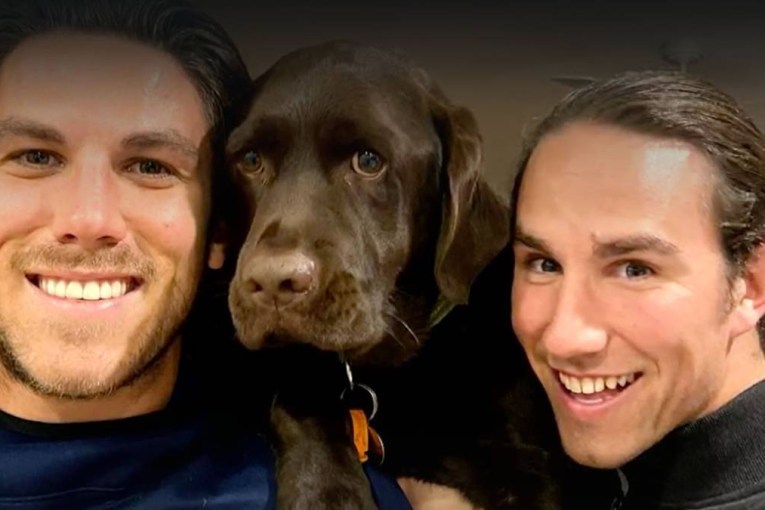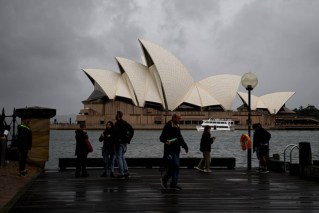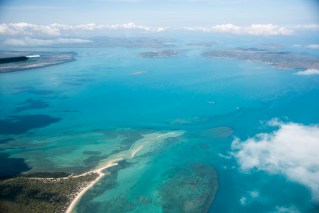Coronavirus update: WHO says one in 10 may have COVID-19

About one in 10 people around the world is likely infected with the coronavirus, the World Health Organisation has said in its latest update.
That’s hundreds of millions of people more than the current tally of about 35 million, WHO emergency operations chief Mike Ryan told the UN health agency’s executive board on Tuesday morning (Australian time).
“Our current best estimates tell us that about 10 per cent of the global population may have been infected by this virus,” Dr Ryan said.
There are currently 7.8 billion people in the world, according to UN statistics.
The share of people with COVID-19 varies among countries, between cities and urban areas and between social groups, Dr Ryan said.
“But what it does mean is that the vast majority of the world remains at risk,” he said.
Even though the true number of cases is likely far higher than the reported numbers, the WHO estimate means that the vast majority of people have no antibodies and remain at risk of contracting COVID-19, the senior WHO official stressed.
NSW beaches closed, virus streak continues
Local councils in Sydney have been forced to close some beaches due to overcrowding fears as New South Wales extended its streak of no COVID-19 community transmission.
Revellers making the most of Monday’s public holiday and warm weather packed Bondi Beach and other popular spots.

Some of Sydney’s beaches, including Coogee beach, are set to close on Monday afternoon. Photo: ABC News
Cronulla beaches were being closed on Monday afternoon after reaching capacity, Surf Life Saving Sydney said.
Waverley Council earlier advised Bondi Beach was nearing capacity and access to the sand and water would soon be restricted to allow for social distancing.
Randwick City Council also said many of its beaches were approaching capacity.
For the 10th day in a row, NSW recorded no new locally transmitted cases. Its only new case was a returned overseas traveller in hotel quarantine in the 24 hours to 8pm on Sunday.
But health authorities are concerned that only 4789 people were tested on Sunday, compared with 8305 in the previous 24 hours.
Ideally, at least 8000 people should be tested in NSW each day.
Returned traveller latest WA COVID-19 case
Western Australia’s active COVID-19 case tally has climbed to 16 after a man in his 30s in hotel quarantine tested positive after returning from Dubai.
WA now has 16 active cases, including 14 among crew of the Patricia Oldendorff bulk carrier anchored off Port Hedland.
Three previously infected crew are no longer considered to be a risk of spreading the disease, WA Health has confirmed.

The Patricia Oldendorff anchored off Port Hedland. Photo: Oldendorff Carriers
The vessel, carrying 20 Filipino nationals and the captain, arrived from Manila on September 16 and is anchored eight nautical miles off WA’s north-west coast.
Nine people remain on the ship as essential crew and there are also a dozen crew members in quarantine at the fenced-off Hedland Hotel.
All but four returned positive tests.
Professor Peter Doherty says Trump therapy could pave way
One of the country’s leading scientists says the treatment being provided to US President Donald Trump could pave the way to fighting COVID-19.
Professor Peter Doherty, who shared the Nobel Prize for Medicine in 1996 for his work on how the immune system recognises virus-infected cells, says a vaccine might not be the only answer.
“Vaccines will help a lot – they’ll shift the bar, but I don’t think they’re going to end the problem,” he told the Melbourne Press Club on Monday.
President Trump is being treated with Remdesivir, an antiviral drug, as well as an eight-gram infusion of monoclonal antibodies.

Donald Trump before boarding Marine One to be transported to hospital. Photo: Twitter
Prof Doherty said monoclonal antibodies could be made in large quantities, were “highly specific” and “really powerful”.
And in good news for Australians, the country has the ability to manufacture them through Melbourne-based biotechnology company CSL.
“We’re hoping these are going to work really well on President Trump … because that’s our best shot out there at the moment for a specific therapy,” Prof Doherty said.
“We’re lucky that we’ve retained CSL in Australia and we have the capacity to make large amounts of monoclonal antibodies.
“One of the problems with this, as we develop therapies and vaccines come forward, is actually getting the product … (so) having CSL here is a big plus.”
No new virus cases recorded in Qld, again
Queensland recorded no new COVID-19 cases but the government is still appealing for more people to get tested.
There are still six active cases, including five in hospital, Premier Annastacia Palasczuk said on Monday.
With 1871 tests conducted in the past 24 hours, Ms Palasczuk called on Queenslanders to get tested if they are feeling unwell.
Queensland Health cleared a Rockhampton aged-care nurse of any wrongdoing after she tested positive to COVID-19 in May.
An investigation found the nurse did not breach an aged-care direction in place at the time, Director-General Dr John Wakefield said in a statement on Monday.
Although she went to work with a mild sore throat and swollen neck gland and while waiting for test results, nurse had not received “relevant education and memoranda”, the investigation report states. She also did not contemplate she would have the coronavirus because she had self-isolated for 14 days after returning from overseas.
The Queensland government has recently extended its COVID-19 public health emergency declaration until midnight on New Year’s Eve.
The state government announced earlier this month it planned to reopen its border to NSW visitors and allow more people to dance at weddings from November 1.

Border restrictions have been lifted between some areas of northern NSW and Queensland. Photo: Getty
Under Queensland’s COVID Safe Future plan, up to 40 people will be able to dance at weddings from November 1. At present only brides and grooms can dance. Gatherings of up to 50 people could be allowed in homes and public spaces from December 1.
From that date, the maximum amount of people allowed at events with a COVID-safe checklist could also increase from 500 to 1500.
-with AAP








